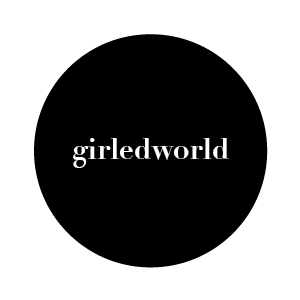Knowing what it takes to shine and stand out in a job interview has never been more important as the world of work pivots, jobs are scarcer and the workforce undergoes a seismic shift.
In fact, recent SEEK data shows since COVID-19 hit, there are at least 800,000 more #unemployed Australians but just two-thirds of the jobs available. On top of that, the #hiring market is seeing more candidates competing for a smaller pool of jobs which has meant job applications per ad have increased exponentially.
But whether you’re going for your first job, a volunteering position, part-time Summer job, university internship or your first step into a ‘real’ career role during COVID, standing out in an interview calls for a new suite of skills and qualities that you will need to quickly get up to speed on.
So we asked career leadership and interview skills coaching experts James Lynch and Mykel Dixon just what it takes to get an edge on the interview process to give yourself the best chance of landing a job in today’s employment market.
Make your resume reflect who you really are.
The right preparation starts with a creative and personalised resume which will ideally grab the attention of a potential future employer.
Creative and cultural leadership expert Mykel Dixon, an award-winning speaker, event curator, musician and author, says it’s important to think about ways to make your resume standout before you've even offered a job interview.
“Do everything you can prior to the interview to create a unique, personalised context for you to shine in. Add a video, write a handwritten letter, build a website that tells your story. You want to prime the people interviewing you so that they're already anticipating and/or excited about your interview before you’ve even arrived,” he says.
Research the role and ‘prove it’ with real-life examples.
Once you’ve wowed them with your application, it’s time to research and plan for the interview - whether that be in person or online.
Leading interview skills coach James Lynch, a recognised leader in interview skills coaching and behavioural based interviewing techniques, says it’s crucial to fully understand the position you are applying for as a first step in the process.
“What’s their business model, unique offering, profile of clients, team profile, future expansion? You need to research and map out all of the above prior to your interview. Print out the job description and underline all the key points and their needs,” he says.
“Then target their needs, by identifying all your past relevant knowledge, skills and experiences.
The next step is to turn these into ‘Prove It’ statements and provide ‘real life’ examples. These have far greater value when they match (the interviewers’ wish list) - and every interviewer definitely has one!”
Be yourself. Everyone else is taken.
Mykel agrees, and believes that the key is, during the interview, be professional but ultimately be yourself.
“Make sure you bring your full self-expression. Don't diminish your passion, dilute your vision, or discount your previous experience. You have a unique way of seeing and sensing the world that is valuable and relevant. Specific skills can be taught. Most employers now believe that self-awareness, self-confidence, drive and a willingness to contribute are far more valuable than previous industry experience,” he says.
Another important consideration to ensure you put your best professional foot forward for the interview, whether face-to-face or online (due to COVID-19 hiring and recruitment practices pivoting to online).
James says online interviews are still “real life” personal interviews, and so candidates should approach them with the same level of effort and commitment they would to a face-to-face interview.
“Dress appropriately, make sure your background is appropriate and have good overhead lighting. If using a laptop, set up the correct distance from the screen for sound and light quality and test it first with a friend online. Make sure you're plugged in, powered up, and know your technology,” he says.
Sell yourself by telling a story. Make yourself shine!
After 20 years of talking to more than 200,000 students about how to stand out in an interview, James consistently encourages them to have the confidence to “think good things and say good things about yourself”.
“Students and candidates hate doing it because they think they're bragging or showing off. However, if you don’t tell your interviewer what’s good, special or different about you, how are they going to make the right choice for the position?,” he says.
“People always say to me, "I hate selling myself." To be honest most people are pretty rubbish at it until I say, "Stop! I want you to tell me about the most exciting holiday, activity or passion that you are involved in and I know nothing about.".
“Then suddenly they become animated. I can hear the smile in their voice, they string big, long, exciting, convincing, sentences together. Then I turn round and say, "There you go, you can sell.” So make sure you take this same level of passion into telling your story, because you need to be passionate about yourself and your next interview.”
“It’s just like a good book, set the narrative and make sure that they understand the storyline. Take them on your journey, and finish with a positive, or successful ending, that reflects favourably on you and meets their needs and expectations.”Mykel also suggests leaving your interviewer something to remember you by, something that tells them who you are.
“Not a bribe or a tacky momento. Something thoughtful, meaningful, authentic and creative. Something that cements for them you are the only candidate they'll ever need,” he says.
girledworld and Future Amp equip today’s young people with key skills for tomorrow’s jobs and industries.
In 2021, the award-winning girledworld founding team launched Future Amp - an online proprietary national career education platform for students.
The platform features ‘Job Ready’ Career Development Modules which are Australian-curriculum aligned, interactive, activity-based learning courses, showcasing real people in real industry contexts.



